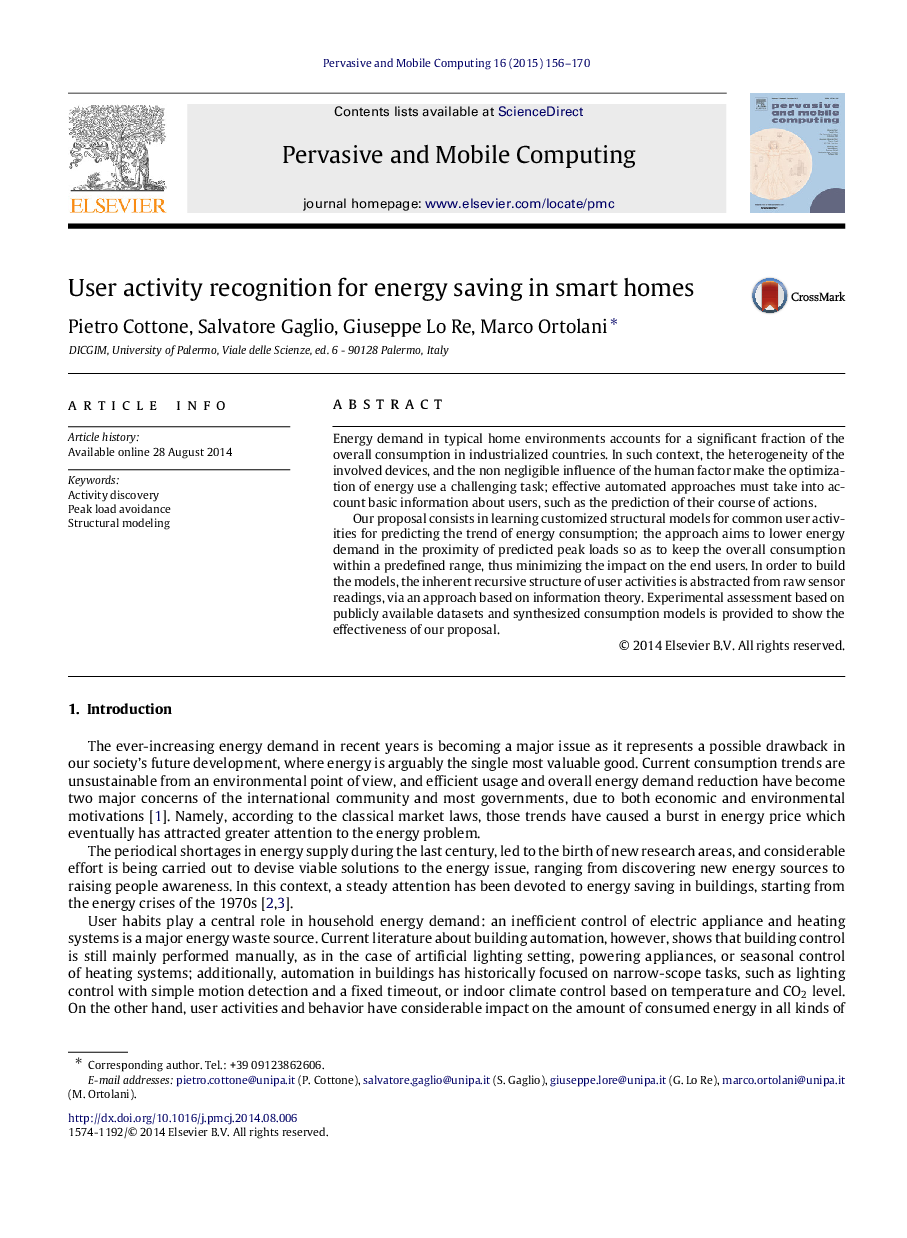| Article ID | Journal | Published Year | Pages | File Type |
|---|---|---|---|---|
| 465980 | Pervasive and Mobile Computing | 2015 | 15 Pages |
Energy demand in typical home environments accounts for a significant fraction of the overall consumption in industrialized countries. In such context, the heterogeneity of the involved devices, and the non negligible influence of the human factor make the optimization of energy use a challenging task; effective automated approaches must take into account basic information about users, such as the prediction of their course of actions.Our proposal consists in learning customized structural models for common user activities for predicting the trend of energy consumption; the approach aims to lower energy demand in the proximity of predicted peak loads so as to keep the overall consumption within a predefined range, thus minimizing the impact on the end users. In order to build the models, the inherent recursive structure of user activities is abstracted from raw sensor readings, via an approach based on information theory. Experimental assessment based on publicly available datasets and synthesized consumption models is provided to show the effectiveness of our proposal.
